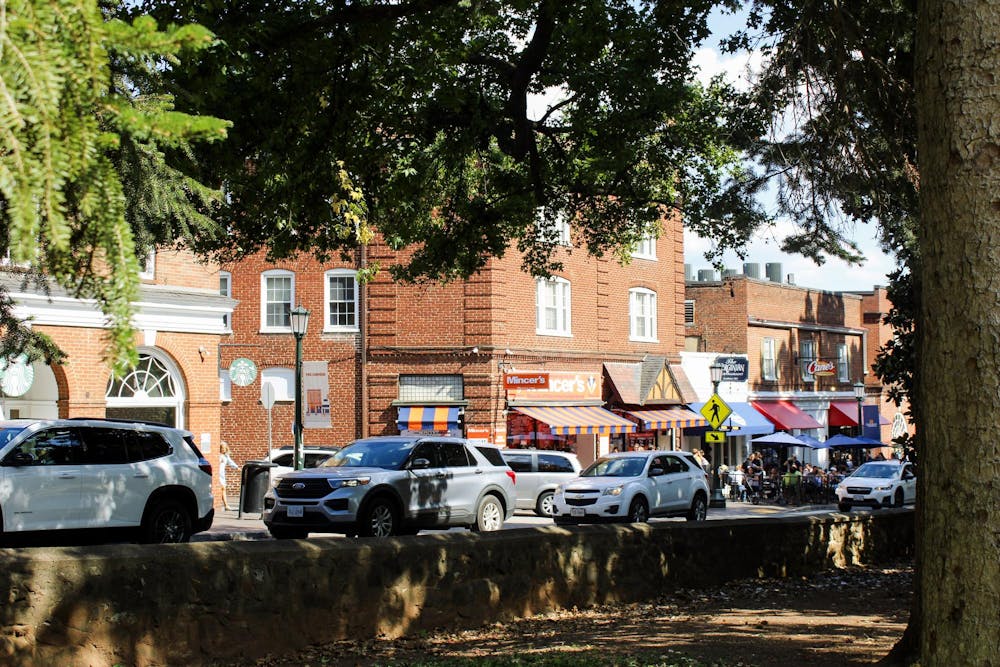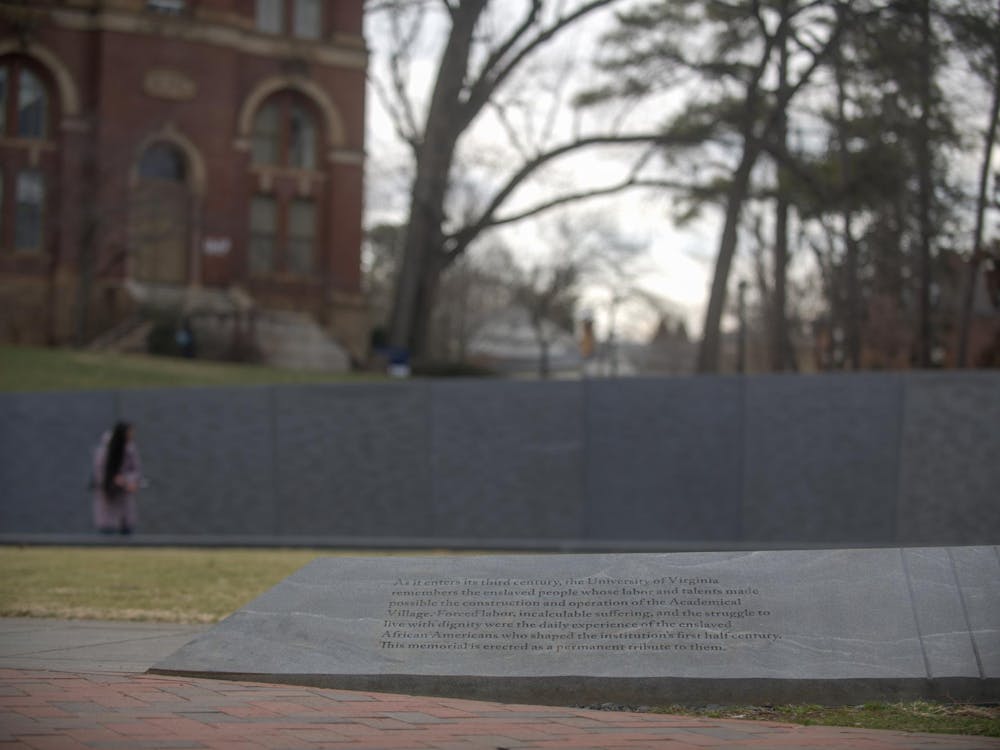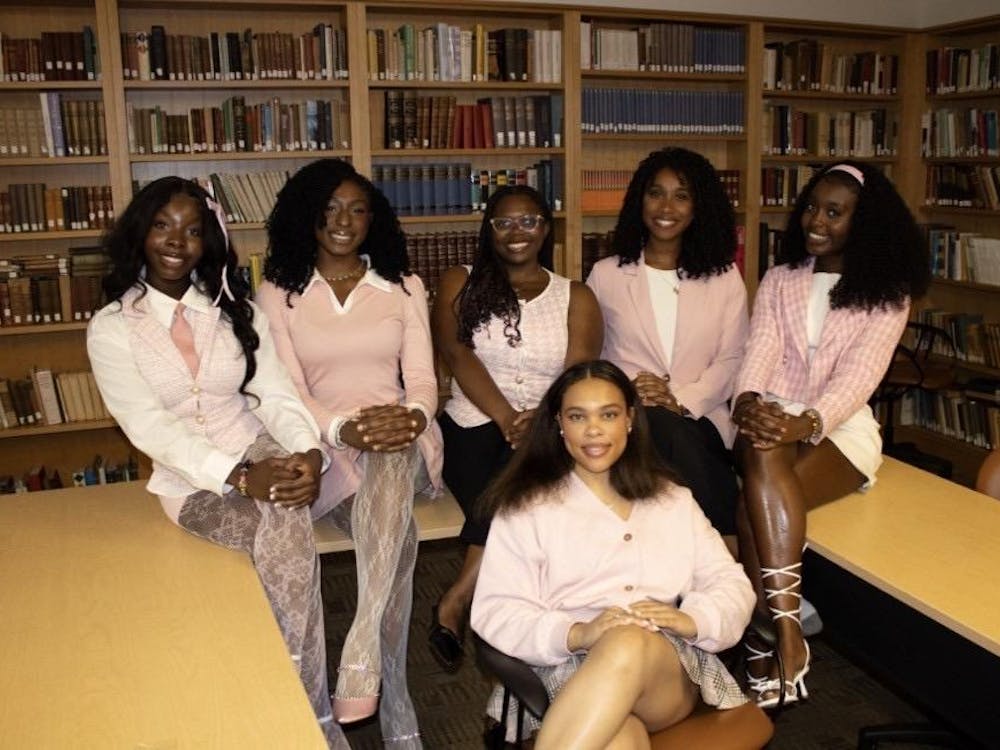When University students contemplate what to bring to school, they typically weigh which smaller objects — from shirts to desk decor — are worth the suitcase space. An even bigger choice these students face, though, is whether or not their car should make the journey back to Charlottesville with them.
From weekly grocery runs to dinners on the Downtown Mall, there are plenty of reasons why students are driven to bring their cars back to Grounds. However, the freedom to access farther-away places with a car comes with its downsides. Slim parking options, gas expenses and even a desire to embrace the walkability and beauty of Grounds push some students to trade in their keys for a nice pair of walking shoes.
Third-year Education student Riley Kane wrestled with these options ahead of her second year at the University. As a member of the club softball team, Kane must get to practices and games on North Grounds, and she determined that she needed a mode of quick transportation to make it to team obligations.
“If I didn't have practice or other places I had to drive to, then I would definitely not bring my car because that’s easier and it would save gas and money,” Kane said.
Chief among the “cons” of driving around Grounds is the battle to find a decent long-term, overnight parking spot. To do so, Kane started her search over the summer. Though she would be living elsewhere, she reached out to the apartment complex Grandmarc in July and again in August to see if they had parking passes left to extend to non-residents. Only recently — and after moving back to Grounds — the complex called her and told her their garage was full. She also inquired about the Culbreth garage, but they simply told her to add herself to their waitlist.
Despite her many efforts to secure a long-term parking spot, Kane still does not have one, and she must park on the street whenever she uses her car. With street parking availability constantly changing, Kane recalled several times when searching for a spot on Madison Lane, 14th Street or another road in the area disrupted her schedule.
“There have been a few days where I've driven around for at least 25 to 30 minutes looking for parking, which is not sustainable when I have to go to other classes,” Kane said.
For some students, this hassle is enough to deter driving altogether. Fourth-year College student Beckett Smith was able to park his car at Grandmarc as a third-year student, and although an accident unfortunately cost him his vehicle, Smith expressed relief that he does not have to deal with car-related inconveniences now.
“It's definitely easier because I don't have to worry about parking,” Smith said. “My [apartment] unit only has one spot, and one of my other roommates has a car as well.”
Smith said that if he had brought a car to Grounds, the parking setup would have been difficult to navigate.
“It was going to be a situation where [me and a roommate] would swap in and out, and then the other one would have to find parking on the street,” Smith said.
Complicating the situation even further, the penalties given by the University Department of Parking and Transportation for illegal parking on Grounds come swiftly and with steep prices, ranging from $55 to $300 and the potential for $45 in late fees. These tickets are a risk that many college students, including Smith, have become increasingly unwilling to take.
“The parking authority has a reputation for getting you instantly,” Smith said. “I had a friend who left his car for five minutes, and he came back to a parking ticket.”
Going without a car has also saved Smith a considerable amount of gas money, which he said is helpful, since he does not work during the school year. He also said that he has started getting his groceries delivered with Walmart Plus, so he does not have to drive to the grocery store.
Now, Smith seldom finds himself needing his own car. On the rare occasion that he really does need a ride, Smith said he can usually hitch one from someone he knows.
“It hasn't been as much of a difference [not having a car] as I thought it would be,” Smith said. “When I need specific things or when I go to dinner somewhere, I find myself wishing that I had had a car, but my girlfriend has one, so in the worst case scenario I just ride around with her.”
Commuting on foot each day, Smith noted, is a great opportunity to spend time out in nature. In doing so, he said that he has noticed all the beauty that surrounds him in Charlottesville.
“I feel like I've seen a lot more by just walking around,” Smith said. “Last year, I would have driven to the Barracks [Shopping Center] or Downtown. Now that I have to walk, it's nice to see some of the community and experience outside a little more.”
Even though other students may find it more difficult to relinquish access to a car, Smith believes that walking around Charlottesville and Grounds allows students to embrace all that the University has to offer. Consequently, Smith supports the current University policy prohibiting all first-year students from bringing cars to school.
“I like [the policy] because the University doesn't have to worry as much about parking,” Smith said. “The first years also get a chance [to] — they're forced to — experience the area.”
Kane echoed Smith’s sentiment, noting that since first-year students already live on Grounds, they have fewer destinations for which a car would be necessary and do not need to take on the parking hassle.
“Everything is already located in a space where they can walk,” Kane said. “For everyone else, I feel like it makes sense, but first-years don’t need to have their cars here. In Charlottesville, the parking situation is already crazy for students and professors.”
Even first-year College student Eissa Albathigi agrees with the policy, which he said gives students the chance to see if they really need a car on Grounds. Albathigi added that as a first-year student, he mostly eats on Grounds — given his required, unlimited U.Va. Dine meal plan — and he can use the University buses to get around. So, for him, driving is not really a necessity.
“Students [can] test it out during their first year and see if they like it, and if they don't, then second year they can get a car,” Albathigi said. “[Second-years] have more commitments anyways, so they would probably need one. I don't think as a first-year you have too many places to go to.”
Albathigi also noted that walking everywhere allows him to avoid the parking delays that Kane and Smith voiced complaints about. He said that without a car, he can simply walk right in and out of class, and he does not have to account for any parking time.
While Albathigi said he has no issues with commuting to class on foot, he still noted some occasions for which a ride would be more convenient.
“A 20-minute walk isn't too much, but when it's things outside of school, like a club event or something late at night, those are the times when I wish I had one,” Albathigi said.
Ultimately, students must decide for themselves whether having a car is worth the hassle, taking into account their own schedules and preferences. For Kane, despite the frustrations with parking, driving remains a convenient option for getting around, shopping for groceries and simply taking a break when she doesn’t feel like walking.
“I feel like if you have [to be] places farther away, then I think the pros outweigh the cons,” Kane said.







